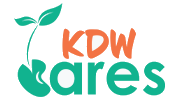WELLNESS PROGRAM FOR YOUTH & TEENS
DID YOU KNOW?
- Nearly one-third of children aged two to nineteen are overweight, with 17 percent classified as obese.
- The Centers for Disease Control and Prevention (CDC) recommends a minimum of sixty minutes of daily physical activity for children.
Childhood obesity, linked to cardiovascular disease, diabetes, and cancer, has been a concern for over a decade. Alarmingly, 85 percent of obese children remain obese into adulthood, unless significant changes occur in their lives.
Research indicates that structured summer opportunities, like youth camps, can foster physical activity and encourage healthy eating practices that may develop into long-term habits (Jago & Baranowski, 2004).
Dr. John Travis emphasizes that optimal wellness involves consistently seeking improvement in health and achieving balance across all health-related aspects.






